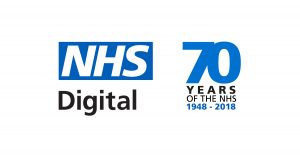
The health secretary has announced paper prescriptions will all but disappear under a shakeup to allow more electronic authorising of medicines.
Current regulations in place that prevent GPs sending prescriptions to pharmacies digitally in some circumstances will be dropped in a bid to save the NHS £300 million by 2021.
Matt Hancock, the health and social care secretary, has said the move will be a lot more convenient for patients and would save staff crucial time.
Repeat prescriptions could simply be collected from the pharmacy, instead of visiting the GP first and the ‘worry’ about losing paper prescriptions will end too.
Mr Hancock said: “In an NHS where thousands of GP surgeries already enjoy the benefits of electronic prescriptions, it can’t be right that there are occasions when archaic paper prescriptions will have to be used.
“As part of our long-term plan, I want the NHS to become to the most advanced healthcare system in the world.”
An average of 7,000 GPs in England are already using electronic prescriptions – which is a huge increase on the eight GPs that had them in 2010.
“Electronic prescribing saves GPs’ time and helps to give patients a better, more seamless experience and ensures every pound of taxpayers’ money is spent effectively.”
Regulations, at the moment, only allow an electronic prescription to be used where a patient has a nominated pharmacy.
This restriction was to prevent patients turning up at a pharmacy not able to receive electronic prescriptions, but it will now be removed.
Mr Hancock said his drive to “get the most out of every penny of taxpayers’ money” would be even more crucial as NHS funding was increased by £20 billion a year by 2023-24.
In his speech last month, Mr Hancock said: “Let this be clear: tech transformation is coming. Our health system is uniquely placed to become the most advanced health system in the world, one where technology address the user need, making care better for patients, but, just as importantly, making life easier for staff.”
